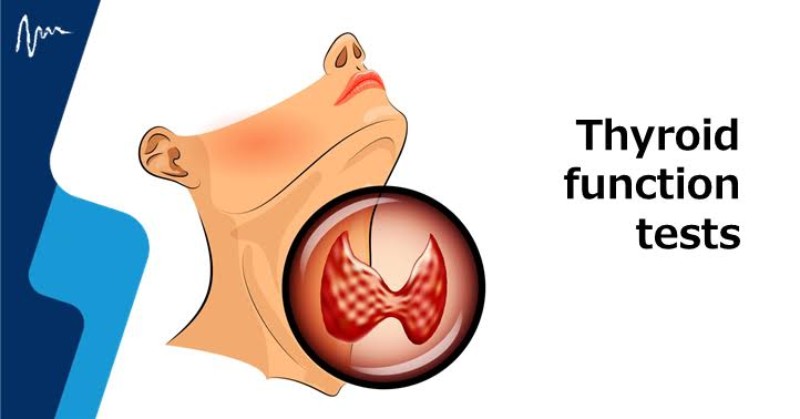
Thyroid Function Testing- Unveiling the Secrets of Your Metabolism
- Healthcare
- September 28, 2023
The metabolism of your body depends on how well your thyroid is working. An imbalance can slow down or speed up your metabolism. The goal is to maintain the balance for a healthy lifestyle.
The thyroid gland is a butterfly-shaped organ at the lower part of your neck. Its role is to produce iodine-containing thyroid hormones. These hormones regulate your metabolism, a process that converts food into energy.
When your thyroid gland is not functioning well, you may have metabolism issues. Hypothyroidism, or low thyroid hormone levels, decreases your metabolism. It means you will have difficulty losing weight. You might have symptoms such as fatigue, cold intolerance, and dry skin. Hyperthyroidism, or high thyroid hormone levels, increases your metabolism. This means you may have symptoms such as weight loss, anxiety, and a rapid heartbeat.
Thyroid function tests are used to see how well your thyroid gland is functioning. It uses various tests that measure the level of TSH, T3, T4 and antibodies in your blood.
What Is Metabolism?
Metabolism is a chemical mechanism that all living organisms need to stay alive. It is the conversion of food into energy. We spend that energy on functions like breathing, eating, moving, and thinking. Some of the elements that influence metabolism are:
- Hormones
- Genetics
- Food
How Does The Thyroid Gland Affect Metabolism?
The thyroid gland makes and releases two hormones, thyroxine (T4) and triiodothyronine (T3). T4 is the inactive form and T3 is the active form of thyroid hormone. T4 undergoes conversion into T3 in the liver and other tissues. T3 handles most of the metabolic effects of thyroid hormones.
Your body cells have receptors that attach to thyroid hormones to function. The metabolism-controlling genes are then activated by these receptors.
When your level of thyroid hormones rises, your metabolism increases. Weight loss, an elevated heart rate, and perspiration may result from this. Your metabolism slows down when thyroid hormone levels drop. This could result in:
- Weight gain
- Exhaustion
- Cold intolerance
How Are Thyroid Function Tests Used To Diagnose Thyroid Problems?
Healthcare professionals use thyroid function tests to diagnose and monitor thyroid problems. They check the level of TSH, T3 and T4 in your blood, which are also included in the thyroid profile test.
- TSH, also known as thyroid stimulating hormone, is produced by the pituitary gland. It signals the thyroid gland to produce T4 and T3. This is one of the first tests that doctors use to diagnose whether there is a thyroid disorder.
- T4 is one of the main hormones that the thyroid gland releases. This is another test that checks the level of T4 in your blood.
- T3 is the other main hormone that the thyroid gland releases. This test is used to check the level of T4 in your blood.
After receiving your thyroid test reports, your doctor will analyse them. They will compare your results to the normal ranges. Your diagnosis will also depend on your age, sex, weight, and other factors.
- If your TSH level is within the normal range, your thyroid gland is working as it is supposed to. It is producing adequate thyroid hormone.
- If your TSH level is high, your thyroid gland is not working well and making enough thyroid hormone. This condition is called hypothyroidism.
- If your TSH level is low, your thyroid gland is producing too much thyroid hormone. This condition is called hyperthyroidism.
How Can I Improve My Metabolism?
There are various ways that you can use to improve your metabolism, including:
- Eating a healthy diet
- Exercise
- Sleep 8 hours a day
- Manage your stress
- Avoid smoking and alcohol
When Should I See My Doctor?
You should see your doctor when your thyroid hormone levels are imbalanced. Your body will show you noticeable symptoms. If you have too many thyroid hormones in your blood, you might be losing weight as your metabolism is high. If you have fewer thyroid hormones, you will gain weight as your metabolism will be slow. Other symptoms might indicate a thyroid disorder are:
- Unexplained weight gain or loss
- Slow or fast heart rate
- Intolerance to cold or heat
- Dry or moist skin
- Irregular menstrual cycles
However, please remember that sometimes your body might not show symptoms. Also, in some cases, the symptoms are similar to other health conditions. This is why the best way to know if your thyroid is working well is by getting a thyroid function test.
In conclusion, your body needs optimal thyroid levels to feel energised. Fluctuations in those levels can affect your metabolism and your overall health. If you are experiencing symptoms of thyroid hormone imbalance, please do not neglect them. Consult your healthcare provider today. With thyroid function tests, they can diagnose the cause and plan a treatment for you.